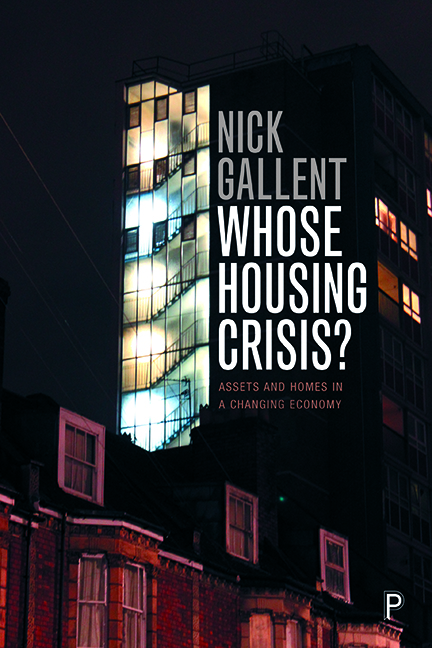5 - Whose housing crisis?
Published online by Cambridge University Press: 27 April 2022
Summary
The picture presented in Chapter 1 was of housing stress primarily affecting generation rent – young people, with no prior history of property ownership, unable to buy homes and stranded long term in the private rented sector. The plight of generation rent is a regular focus for the British press – aspiring homebuyers locked out of the property-owning benefits afforded their parents only a generation ago. Is the housing crisis theirs alone? Is the solution a matter of simply giving them a leg-up into homeownership, as the government regularly tries to do (or so it appears) through various market access supports? Those supports, however, operate at the fringe of the housing market. Families and individuals with some capital and good incomes are encouraged, by cuts in stamp duty or the promise of a 20% discount on a starter home, to make that final stretch to homeownership. This solution works for a few but the overall impact of such market supports is simply to smooth the path of additional wealth into housing – and, in aggregate, the proportion of homeowners in England has been declining rapidly. When the chancellor removed stamp duty for first-time buyers on homes costing less than £300,000 in November 2017, the Office for Budget Responsibility had already predicted that such a move would increase house prices by 0.3% within a year, offsetting much of the stamp duty saving available to those buyers. The chancellor's objective was, again, to keep house prices on their upward track, following the stumbling effect of his predecessor's hike in stamp duty on second homes and adjustments to the rate of tax relief available to the owners of buy-to-let properties, not to mention Brexit. Ahead of further negotiations on the UK's future trading relationship with the European Union, the objective was to support the economy through what was likely to be a turbulent period – and what better way to do so than to facilitate further investment in housing?
Although a clear political target, generation rent was never going to greatly benefit from this easing of transaction tax. The real beneficiary was the market and existing homeowners. So is everything good for existing owners?
- Type
- Chapter
- Information
- Whose Housing Crisis?Assets and Homes in a Changing Economy, pp. 109 - 130Publisher: Bristol University PressPrint publication year: 2019



